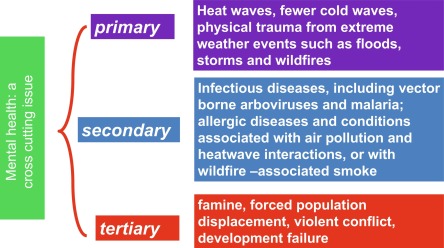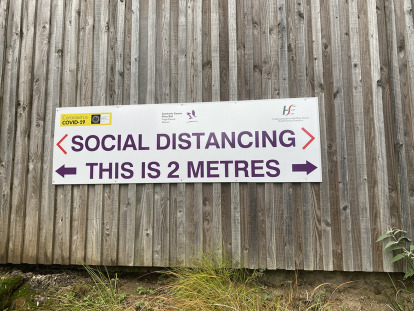In this study, the authors estimate the causal effect of air pollution on eye and ear health. They find that eye or ear disease possibility rises 1.48% for a 10 μg/m3 increase in four-week average PM2.5 concentration. The impacts can last about 28 weeks and will be insignificant afterward.
In this study, the authors analyse alternative pembrolizumab administration strategies that might have environmental advantages over the current dosing and compounding paradigms (improved environmental sustainability without sacrificing clinical outcomes)
Proper regulation is essential to ensure that such a system benefited those in need, and that those who provided organs are properly compensated. Without significant policy changes, however, far too many patients will continue to languish on waiting lists until they run out of time. The goal of SDG3 is that everyone should have a good health and well-being.
Human health, in the coming decades (and already in some “front-running” regions), is in peril. Although some authorities warn that over-stating such risks can induce paralysis and despair, under-stating them will not generate the intense action that is required. The impact of climate change on the Earth system is now so significant that the next ice age will likely be delayed by at least 50,000 years [201]. If humans do not rapidly change their collective behavior, then this may be their most enduring legacy. It is hoped that this chapter makes a small contribution to SDG3.
To ensure sustainability, vertical or disease-specific programs or projects (government funded or external funded) should not develop standalone community participation interventions. They should be mandated to build on the existing social capital. The untied funds required for implementation of decentralized decision-making should be released in a timely manner without needless audit objections. Communities are not going to go anywhere. Hence, we need consistence in policy concerning community participation and patience from the administrators to implement community participation holistically with realistic sustainable short-term process indicators, while the focus is on medium- and long-term goals, including SDG3.
Public policy and linked social action must address the structural or intermediary social determinants of health. Though policy decisions or reform is one of the social action approaches, the programmatic, regulatory, and community development approaches need to be efficiently used. The COVID-19 pandemic expedited and facilitated collaboration with people outside the health sector. Such established and better-performing collaborations and social actions need continuation and expansion to other areas for better health and well-being. The national and subnational multisectoral action plan and its effective implementation can facilitate the “Health in All Policies” and address most of the social determinants of health.
Elsevier,
The Thinking Healthcare System
Artificial Intelligence and Human Equity
2023, Pages 99-129
Highlights the 21st century's fundamental “global health” reformulation of PubHealth and anticolonial resistance (to a perceived cultural imperialism of the West including in PubHealth) supporting SDG 3.
This content aligns with Goal 3: Good Health and Wellbeing as well as Goal 10: Reduced Inequalities by emphasizing the importance of technology assessment capability in shaping health policy and priorities to improve health outcomes and quality of life. By promoting strong professional education and practice standards, accreditation processes, and educational programs for public health, the content supports efforts to enhance the quality of healthcare services and public health interventions. Additionally, it aligns with Goal 10: Reduced Inequalities by recognizing the need to address disparities and ensure equitable access to evidence-based methods of prevention, diagnosis, and therapy. By advocating for continuous revision of legal frameworks and ethical standards in response to societal changes and emerging health challenges, the content underscores the importance of promoting fairness and equity in public health practices and policies. Moreover, it highlights the ethical imperative of public health interventions to protect populations from illness and premature death, thereby contributing to efforts aimed at reducing inequalities in health outcomes and promoting the well-being of all members of society.
Elsevier,
Outbreaks, Epidemics, and Health Security
COVID-19 and Ensuring Future Pandemic Preparedness in Ireland and the World
2023, Pages 3-17
Future global health crises should, wherever possible, be managed in a bipartisan way, mindful of the divides they create, supporting SDG3.


